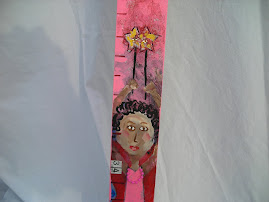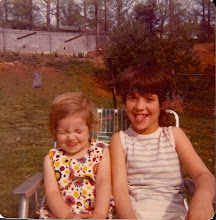"We played outside."
"We played in a circle."
"We had fun."
"Miss. Carter is nice."
"So is Miss Rebecca."
Yeah! Yeah! Yeah!
I wrote for over an hour! It was a recent record, and it was a great time: here is what I jotted down; I've already planned the visual on wood for it (my venture into folk art.)
From the early pages of novel #3:
Jacob was guilty.
Have you ever heard that Billy Joel song Only the Good Die Young from his 1977 album, Stranger? Jacob’s daughter Charlotte played that album, and that particular song, Only the Good Die Young, over and over as some sort of tribute to her mother or punishment to her father. Sure, Gloria had been Catholic, been confirmed, been seduced by Jacob Butterfield, who moved her from a comfortable New Jersey suburbanite home to a junkyard in rural Virginia to birth two daughters, to feed chickens, wash clothes and bake casseroles. She rubbed Jacob’s feet. She kissed her girls’ boo boos and sewed costumes for the plays put on by the Methodist church and local school. In 1975, she was what a mother was supposed to be. Only after she died, while
You got a nice white dress and a party on your confirmation
You got a brand new soul
mmmm, And a cross of gold
But [Gloria] they didn't give you quite enough information
You didn't count on me
When you were counting on your rosary
#
If you don’t understand where you come from,
you’re going to wreck where you’re going.
Aimee’s Beginning
Aimee was fourteen. She ran into the kitchen, blonde and lean, wearing one of her mother’s dresses, its blue hem stiff with mud. “Is
Jacob shook his head no.
“How come?”
“It’s not my job to feed her family.”
“
“Come here.” He laid his work-worn hands on Aimee’s shoulders, squeezing gently. He wasn’t an ugly man, just old. With her mother dead three years now, it was hard to remember just exactly how anyone had looked then. Before. She remembered that she was short at eleven. She was waiting for her growth spurt, always checking her height on the wall and against her mama. Feeling certain, “I bet last year I wasn’t this tall. I bet my head didn’t come up to here on you. I wasn’t as tall, I don’t think.” Her mama said, “I think you’ve really grown.” She hadn’t really… Her sis Charlotte had been bossy, already a finger-pointer with big boobs, she walked around the house half-naked. Aimee didn’t remember her dad. Not really. She remembered the Christmas tree and the ornaments crashing to the ground. She forgave him. Her mama always forgave him. Everyone but
When the house was empty, when she knew her dad was out buying or selling junk to add to their pile, their “dream-of-a-life”, Charlotte called it, Aimee dressed up in her mother’s green pants and orange platforms, smoked one of her dad’s cigarettes, pulled her nearly-white hair back into a ponytail and leaned against the counter twirling the glass ashtray, pretending to be her mother Gloria, pretending that she, her own self, was sitting at the breakfast table eating a bowl of Rice Crispies. ‘How you doin’ today, honey?’ She made up pointless conversations about what happened three years ago when she was in the sixth grade. They talked about the science fair, about the current event she had to do, about how Mr. Peebles, her English teacher, should wear deodorant. Aimee laughed when her mother pinched her nose. ‘We pay his salary,’ she imagined her mother saying. ‘I wonder if his shirts are permanently stained. His poor wife…’ After a while, Aimee went upstairs, returning her mother’s clothes to their rightful place, and cried.
When her daddy caught her—all the time—she worried he’d mistake her for her mama, and take her to his bed, but he said, “Why are you pretending to be a woman six feet under the dirt?”
He didn’t mean it. As she hid her face, sort of wishing he might love her in any way, even one so inappropriate, he pursued, “What the hell’s wrong with you?”
“Daddy!”
“Shut up!”















No comments:
Post a Comment